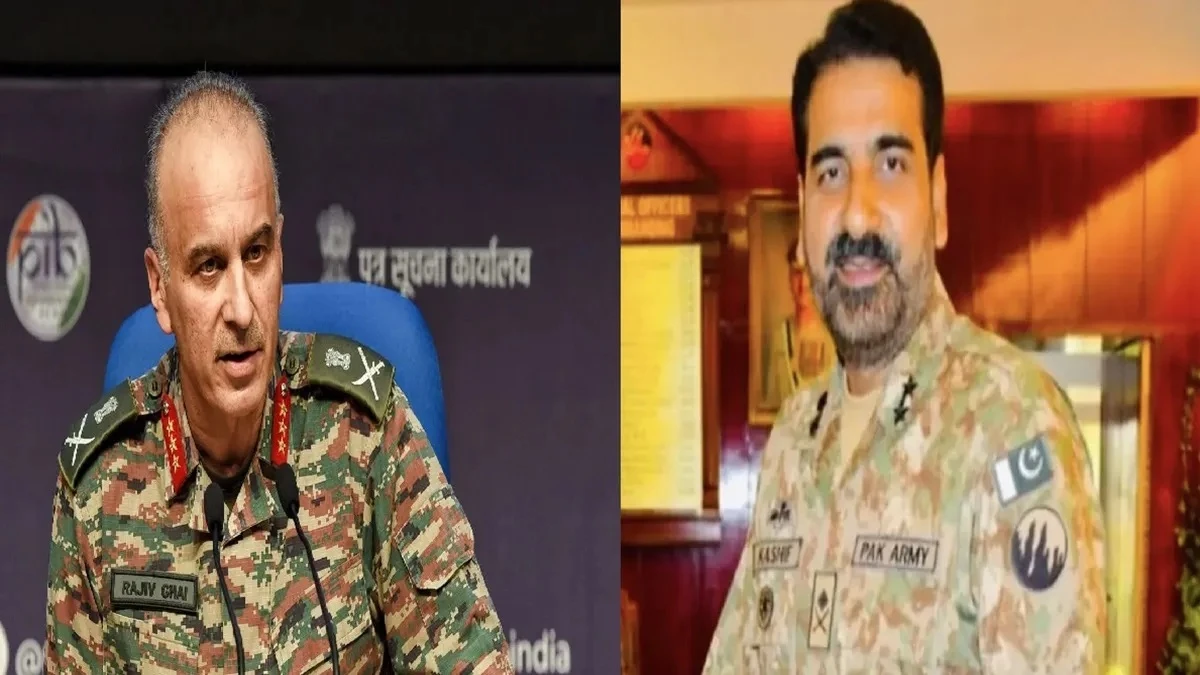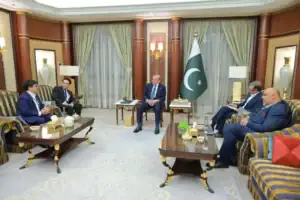Islamabad: India and Pakistan have agreed to extend the ongoing ceasefire following a third round of contact between the Director Generals of Military Operations (DGMOs) of both countries.
The latest communication took place on Wednesday afternoon via a dedicated military hotline, marking the third such interaction since the ceasefire understanding was revived.
According to sources, Major General Kashif Abdullah of Pakistan and Lieutenant General Rajiv Ghai of India held a 45-minute conversation during which they discussed the situation on the ground along the Line of Control (LoC).
Both sides reaffirmed their commitment to upholding the ceasefire and agreed to maintain peace and stability in the region.
This hotline contact follows earlier communications, with the first taking place on April 12.
During these exchanges, the two DGMOs have not only reviewed the ground situation but have also agreed to sustain the ceasefire through regular weekly contacts, signaling a continued effort toward de-escalation and confidence-building between the two nuclear-armed neighbors.
Earlier DGMOs Meetings
The Director Generals of Military Operations (DGMOs) of Pakistan and India held their third communication through a military hotline on Wednesday afternoon, reaffirming their commitment to the current ceasefire arrangement.
This line of communication has been re-established as part of a broader effort supported by the United States and other friendly nations to reduce tensions between the two nuclear-armed neighbors.
According to informed sources, the conversation focused on the prevailing ground situation, with both sides agreeing to maintain the status quo.
Read More: Flights Resume in Pakistan After India Tensions
The ceasefire remains intact “for the time being,” consistent with the terms discussed during their previous exchange on Monday.
However, no official statement has been released by either side detailing the specifics of the dialogue.
Diplomatic sources revealed that several global capitals remain actively involved in encouraging restraint and advocating for early confidence-building measures (CBMs) between Islamabad and New Delhi.
These steps are seen as essential to creating the foundation for a more structured and high-level bilateral dialogue.
However, sources also cautioned that any move toward formal negotiations would require significant political will and groundwork from both sides, including the development of a more conducive domestic and diplomatic environment.
In a bid to stabilize the fragile ceasefire, certain agreed-upon measures have already been implemented.
Pakistan’s Foreign Office spokesperson and Additional Foreign Secretary, Ambassador Shafqat Ali Khan, is expected to provide a detailed briefing on these developments in a press conference scheduled for Friday.
In a parallel development, diplomatic relations between the two countries experienced a notable adjustment earlier this week.
Diplomats recently declared persona non grata were repatriated on Tuesday after being given 24 hours to leave.
Also Read: Gehlot Recalls Indira Gandhi’s Role in India-Pak Peace
This has led to a reduction in the staff strength at each high commission, with only 29 officials remaining on both sides. While these positions have not been formally abolished, fresh postings are anticipated once host countries grant the necessary visas—likely by August, according to diplomatic sources.









